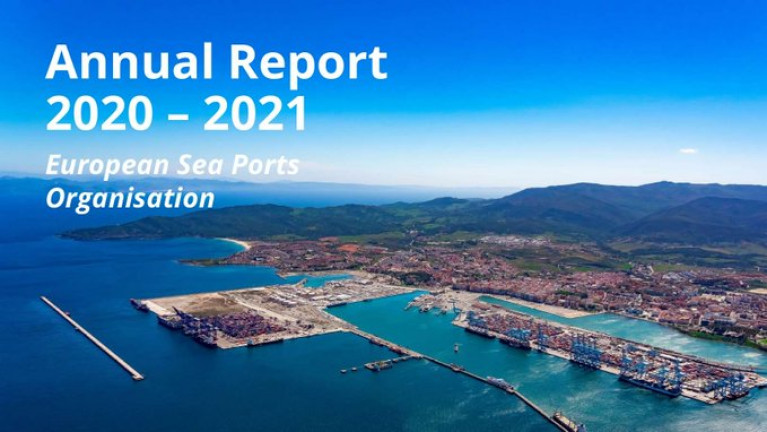Displaying items by tag: Port of Gdańsk
This week the Port of Gdańsk Authority in Poland, was announced winner of the European Sea Ports Organsisation (ESPO) Award 2021 in recognition of its role in the recovery of the city and the local community during lock-downs.
The ESPO Award was handed out by Walter Goetz, Head of Cabinet of Adina Vălean, the Commissioner for Transport, during the traditional ceremony and dinner at the Museum of Natural Sciences in Brussels, which gathered more than 170 guests.
Port of Gdańsk Authority won the ESPO Award 2021 for its project “WE ARE – unification of local community of Gdańsk’s districts Nowy Port and Stogi with its old neighbour, the sea port”.
Various activities took place under the WE ARE slogan to promote the values of cooperation, solidarity and responsibility. Efforts focussed on the residents of two districts of Gdańsk: Nowy Port and Stogi.
During the longest lockdown, the Port funded and distributed 8000 meals to seniors who were most exposed to the risk of contracting COVID-19, purchased medical equipment for Pomeranian hospitals to combat the coronavirus, supported local sports clubs to continue training, and supported two local initiatives.
Looking back at the selection process in this 13th edition of the ESPO Award, the Chairman of the Jury, Dimitrios Theologitis said: "The jury was convinced by the "We Are" initiative of the port of Gdánsk. In difficult times, the port showed cooperation, responsibility and solidarity. Its actions were highly appreciated by the local community and strengthened the ties between the city and what is otherwise a remote industrial environment. Many of the effects will continue to be felt in the future. The award is a symbol that the work done by the ports is also inspired and directed towards people.”
Łukasz Greinke, CEO of Port of Gdańsk Authority says : “This award makes us even more convinced that good comes back as soon as we open ourselves to other people. Since the beginning of the pandemic, we have supported those on the front lines of the fight against the coronavirus: paramedics in the entire Pomorze region, also the seniors, and sport initiatives focused on children. The time of the pandemic released in us a huge amount of energy and empathy and a sense of solidarity, so needed at this time. Congratulations to all finalists. We are impressed with your initiatives. The award is our motivation for further actions in the future.”
Out of the eleven submissions received this year, the projects of Gdańsk Authority S.A. (Poland), Hamburg Port Authority (Germany), Port Authority of Valencia (Spain) and Port Authority of Vigo (Spain) had been shortlisted for this 13th edition. All the submissions are summarised in the ESPO Award Brochure 2021.
On the same day of the award announcement, 9 November, ESPO has also published its Annual Report 2020-2021, which outlines the activities of the organisation over the past year.





























































